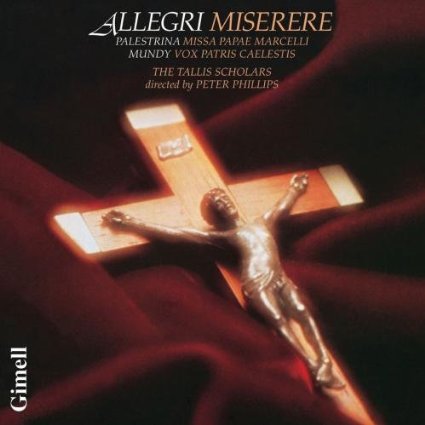Music |
Tallis Scholars: Miserere
Gregorio Allegri
By
Published: Mar 26, 2024
Category:
Classical
Pope Francis is one surprise after another.
This one is about hearing confessionals at the Vatican, surely a thrill for the faithful who get him to forgive them their sins.
But a few years ago, instead of going directly to the booth, he walked over to another and made his confession. Watch.
The music that was playing as he confessed?
The Allegri “Miserere.” Easter music once exclusive to the pope, now available for all. The ideal metaphor for this Pope.
There’s a famous story about this piece.
Rome. Easter Week, hundreds of years ago. The Matins service at the Vatican. 3 AM. Twenty-seven candles are lit. One at a time, they’re extinguished. One candle left. The Pope kneels before the altar and starts to pray.
Music begins. And what music! The words are familiar: Psalm 51, David’s account of his affair with Bathsheba and his plea to God: “Wash away all my guilt; from my sin cleanse me.” It’s the choral work that stuns. Sweeping harmonies for the choir. A top C sung by a single castrato. And, connecting them, the simplest of chants. Watch/listen.
This “Miserere” was the glory of Gregorio Allegri (1582 – 1652), a singer in the Papal Chapel. For this one work, written in 1638, he joins the immortals — it is such exquisite music that one of the 17th century Popes decided it should be played only on Wednesday and Good Friday of Holy Week, and only in the Sistine Chapel. No one dared to copy it — the penalty was excommunication. [To buy the CD from Amazon, click here.]
Thus begins the second — and more remarkable — remarkable story about the “Miserere.” In 1770, when he was 12 years old, Mozart and his father came to Rome for Holy Week. St. Peter’s and the Sistine Chapel were obvious destinations; on Wednesday, Mozart heard the “Miserere.” That night, from memory, he transcribed it. On Friday, he brought his copy — hidden in his hat —to the second performance of the piece. When he checked it for accuracy, he discovered he’d made two mistakes. No copy of the Mozart transcription exists. It’s said he handed it off, whereupon it was copied again — and his version was then destroyed.
The truth of this story? Unknown. But only the music matters. I have heard it, on Good Friday, in a cathedral with wonderful acoustics, and it was ambrosia — music of such purity that, like David, I felt like a sinner before God. Add incense and priests and squint a little, and you’re in Rome, centuries ago. It’s wonderfully disorienting.
On this CD, you’ll find two other stellar pieces. One is Palestrina’s “Mass for Pope Marcellus II.”
And then William Mundy’s “Vox Patris Caelestis.”
The singers? The Tallis Scholars, who are, for my money, the greatest interpreters of any music that Peter Phillips, their founder, chooses to record.
I play this CD every year at Easter. But its power and beauty are such that I don’t limit it to two days a year. When I’m famished for beauty, this music calls to me. It will call to you too.


